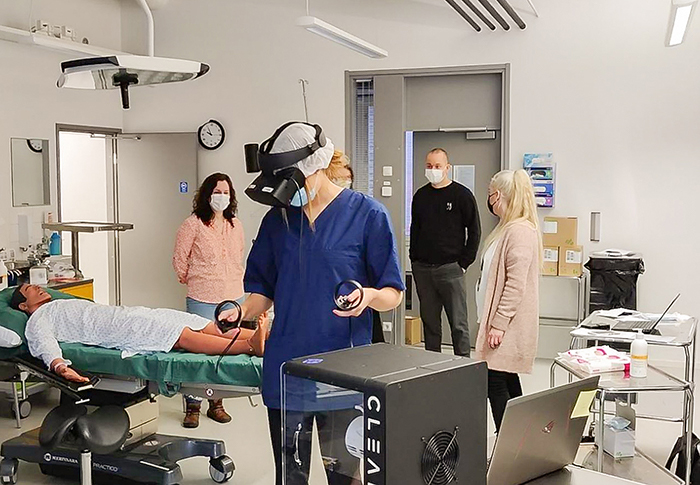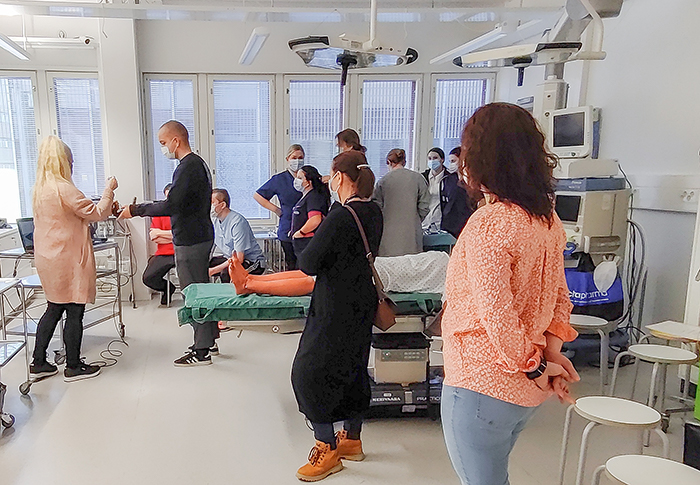Imagine standing in an operation theatre and handing instruments to a surgeon. To nursing students, the impression can be nerve-wracking and may cause them to choose another area of specialization.
To guarantee that the future is not lacking nurses with competence to work in this demanding field, Turku University of Applied Sciences has created a virtual 360° game that supports the students’ skills in identifying surgical instruments.

The game gives the students a boost in their competence and showcases the reality of working in an operating theatre.
“When turning my head, I saw the very realistic environment. I believe this game lowers the threshold to work in an operating theatre,” says Jasmine Pitkänen.
Pitkänen, a soon-to-be-graduate nursing student. Along with her classmates, she gave an estimation of the learning experience. With a bit more practice on the game, Jasmine would be ready to jump on the deep end.
Learning by doing was a rewarding method for the students. Instead of reading books or watching videos and learning passively, the students appreciated active practicing and experiencing the lifelike situation. Or like Mikko Kinnunen put it:
“The experience was concrete, authentic and very realistic. I improved my score after rehearsing just once. When you practice, you learn.”

The students appreciated that, unlike books and videos, the game indicated incorrect answers. This feature along with the possibility to retry were seen as big bonuses from the learning point of view.
“If I handed a wrong instrument, it was made clear, and I got a chance to try again,” said Riikka Mörsky.
Instead of having the instruments explained as a list in a book, the game showed all the instruments at one glance. When reading about the topic, it did not occur to her, how the situation would look like in a real setting.
“If I had played this game at the beginning of my studies, I might have chosen to practice in an operating theatre.”
Valtteri Hannila appreciated the safe learning experience. Despite handing a wrong instrument several times, the surgeon stayed calm, and the rehearsal continued. In the real-life, a surgeon might not be as understanding. Playing in front of others added, however, more stress to the situation.
During their nursing studies, the students had played a learning game before, but this was the first VR learning game experience. Based on their practicing on the Instrument game, both the students’ experiences and attitudes towards the learning method were positive.
See video and interviews of the students testing the instrument game.
You may also find these stories interesting
The police student case – using 360° video in education
Specific needs for simulation tools in Health Education

